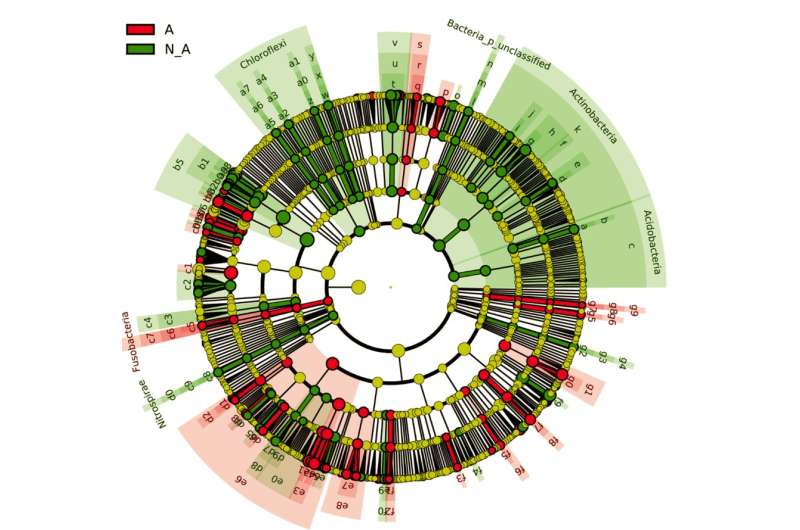Spleen microbes of wild animals change with tick-borne illness

Anaplasmosis, a tick-borne febrile disease, can be carried by wild mammals before being transmitted to humans through a tick bite. Now, researchers reporting in PLOS Neglected Tropical Diseases have found that Anaplasma bacteria alter the patterns of other microbes in the spleens of mice and shrews.
The spleen, in mammals, acts as a blood filter. While studies have looked at the microbiota of the blood of mammals, few studies have been carried out on spleen microbiota. Additionally, it was unknown whether there were any vector-borne bacteria in Chongming Island, the third biggest island in China and where the study was conducted.
Yan Ge, of Tongji University, China, and colleagues trapped 35 mice and shrews on Chongming Island. They then sequenced the DNA isolated from spleen samples of each animal. The genes allowed them to detect bacterial phyla and hierarchies in each animal's spleen.
The most bacteria detected in the animals' spleens included Anaplasma, Rickettsia, and Coxiella, all tick-borne diseases that can infect humans. Interestingly, animals that were Anaplasma-positive had a significantly different overall bacterial composition in their spleen compared to animals that were Anaplasma-negative. Within Anaplasma-positive animals, there were two smaller clusters with similar bacterial features, likely linked to a separate independent factor not analyzed in this study. More subtle patterns in microbiota also emerged based on animal gender, type, and geographic location.
"The detection of vector-borne bacteria highlights the role of wild mice and shrews as animal reservoirs with potential public health importance in the studied areas," the researchers say.
More information: PLOS Neglected Tropical Diseases (2018). DOI: 10.1371/journal.pntd.0006499

















